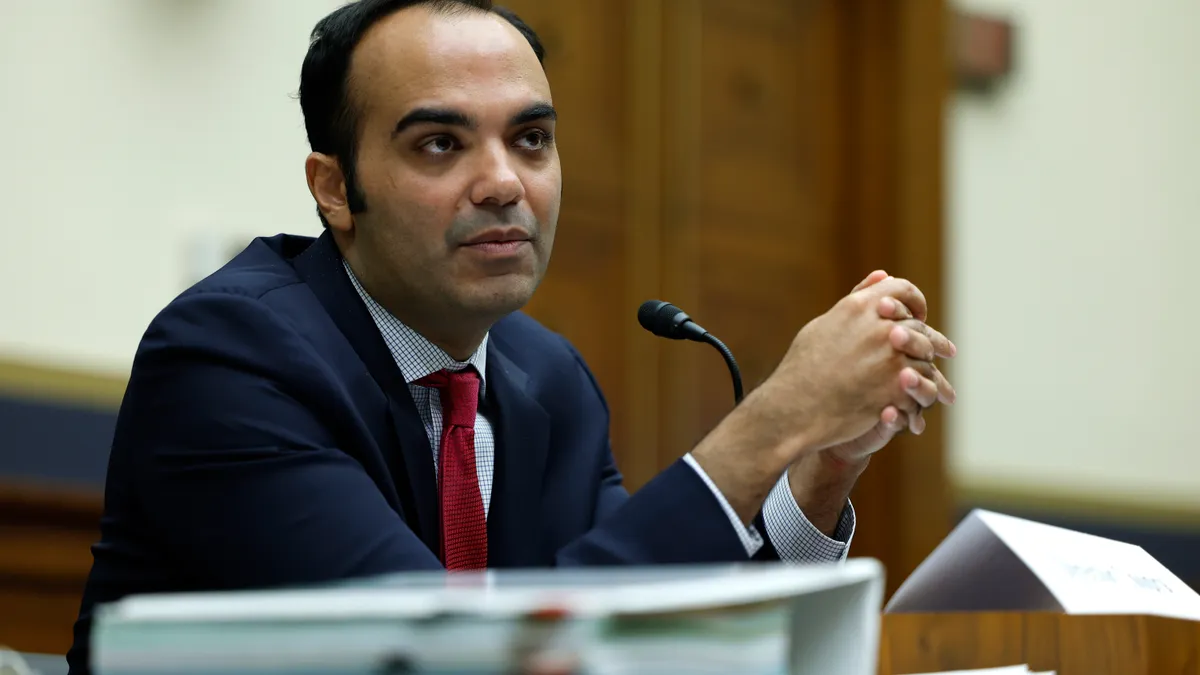Payment industry acquisitions last year amounted to a whimper, compared to the roars seen in recent years.
The value of payments deals plummeted to $27.2 billion, or about a third of the $76.7 billion in transactions in 2021, according to The Strawhecker Group, an Omaha-based industry consulting firm. The number of acquisitions last year also declined, by 14% to 113, from 132 in 2021, underscoring the smaller size of transactions in 2022.
Economic conditions were the culprit when it came to the blame game for why there wasn’t more merger and acquisition activity in the industry last year, said TSG’s Zach Spellman, who is a project manager at the firm. Higher interest rates threatened to increase debt burdens for companies in buyouts and a looming recession also raised the specter of increased difficulty in digesting deals, he noted.
Generally, companies and investment firms are also less interested in exchanging cash for more risk at the moment, given the economic conditions, Spellman explained. “I think it really just reflects in 2022 people taking less risks,” Spellman said in an interview this week.
The M&A slowdown in payments also echoed a broader downdraft for deals across business, particularly in the second half of the year. Overall, there were about 53,863 transactions worth $3.6 trillion in 2022, The New York Times reported, citing the research firm Refinitiv. While that value is far below the $5.7 trillion worth of deals in 2021, it’s not far off the annual totals in the prior six years, the newspaper reported, pointing to a “normalization” last year.
While the number of deals being done has been somewhat similarly steady in the payments realm, the value of those transactions has fluctuated significantly in recent years. In 2020, 125 payments deals totaled $99.5 billion, but in 2019 there were 113 purchases with a whopping value of $169 billion, largely due to three mega-mergers by Fidelity National Information Services, known as FIS, as well as Fiserv and Global Payments, according to TSG.
Big 2022 deals
In payments, the two biggest deals of the year were Thoma Bravo’s agreement last month to buy the privately held expense management player Coupa Software for $8 billion, and the earlier $4 billion Global Payments bid to purchase EVO Payments to expand in Europe and the business-to-business payments arena.
While Coupa largely relies on third-party payments partners, including digital payments mega-unicorn Stripe, it’s a major player in the business-to-business expense management arena that is often considered a part of payments.
Jack Henry & Associates CEO David Foss provided some insights on the merger and acquisition slowdown when he spoke at an investor conference last month. His company, which he refers to as a “serial acquirer,” had expected to get busy buying in the market early last year, but was surprised when prices for targeted acquisitions were not dropping as much as expected in the stressed economy. Venture investments kept flowing into companies and supporting their valuations, he explained.
He said he thought that “by October deals were going to be happening and valuations would kind of settle in and people would find religion as far as what they thought their company was really worth,” Foss said at the Dec. 6 Nasdaq conference. “None of that has happened. Everybody still has their expectations sky-high as far as valuation.”
Nonetheless, Foss said he’s now counting on 2023 to be the year that those opportunities emerge, as venture investments ebb. Last year, the payments technology provider acquired Payrailz, but Foss called that a “little” deal and noted it’s the only one Jack Henry has done in three years.
“Early next calendar year, mid next calendar year, we think there will be some opportunities for us to pursue and so we're anxious to try and find some deals,” he said last month. “We don't require acquisitions to fuel growth, but it would be nice, I think, to find a deal or two.”
Activist investor, private equity interest
At Jack Henry’s larger competitors, some M&A activity this year could be spurred by activist investors who have recently targeted FIS. That company said in December that it’s undertaking a “comprehensive” review of operations, after disclosing that it has entered conversations with the hedge fund D.E. Shaw and the investment firm JANA Partners. Their influence could lead to divestitures.
Still, FIS and its rival Fiserv, which have formerly been acquisitive, could revive their purchasing power, too, especially given rising competition. Those large payment processors will “become increasingly active” as they seek to compete with fintech upstarts Stripe and Adyen by snapping up more modern capabilities, predicts Jordan McKee, principal research analyst at S&P Global Market Intelligence’s 451 Research. The card networks, too, tend to be pretty consistent buyers, as they aim to diversify and move beyond the card arena, he added.
And with the stock prices of some companies down in recent years, including that of digital payments pioneer PayPal, targets can begin to look attractive to private equity firms carrying cash. Last year, private equity firms made significant acquisitions in the industry, including Madison Dearborn Partners agreeing to scoop up publicly-traded money transfer company MoneyGram for $1.8 billion in February. The Thoma Bravo deal to buy Coupa unfolded after reported talks with Vista Equity put the software company in play.
Private equity firms are likely to make a return to payments and fintech M&A, McKee said. “They had a seat at the table over the past few years in a lot of deals, but they were, quite simply, just priced out of those deals by companies that were willing to hand over significant multiples to make acquisitions,” he said. “Now that valuations have come back down to earth, I think you’ll see more private equity in the space.”
Spellman also expects there will be more payments interest in software deals this year, particularly in buying independent software vendors that cater to businesses in a particular industry vertical, such as education, salons or construction.
Shift4, a payments player that specializes in restaurant, hospitality, sports stadium and casino industries, was particularly acquisitive in 2022 with several purchases during the year, including some that allowed it to expand internationally.
One instance where a deal fell apart last year, with buy now-pay later players Zip and Sezzle agreeing to drop their merger plan, Spellman said was more a sign of BNPL mania waning than anything in particular about the payments segment.
Last year “was a little bit quiet,” but given funding challenges payments companies have faced, McKee expects there will be “a large number of fintechs that just don’t have the runway to make it through 2023.” M&A is a likely way “that we see those subscale fintechs exit the market, being on the block and having a larger player come and swallow them up,” McKee said.














